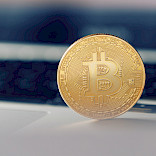This is the case of “certainty”. If you hear, for example, an expert say that he is certain that a recession is coming by the end of 2023, he has a credibility problem. Who can be certain of anything in the world of economics or finance? We can believe that there is a good chance that a recession is coming, but we cannot be certain.
Over the past several weeks, my team and I have analyzed the stock of a Canadian company. After an analysis of the business model, risks, growth opportunities, etc., we concluded that the stock was a buy based on our assessment. But can we conclude that we are certain that such an investment will be lucrative in the next few years? Absolutely not! Many often-unpredictable factors could affect the company’s results and our assessment of its stock over the next few years.
In my opinion, an investor is a probabilist. He makes decisions after weighing the pros and cons and having estimated their weight in assessing the probabilities. The conditions leading to certainty do not exist.
Extreme words such as “apocalypse” are also to be avoided. However, I heard the expression “economic apocalypse” in the media recently. The end of the world economy, really? Isn’t the word a bit extreme? As Howard Marks, an investor and author of several books, has written, “Most of the time the end of the world doesn’t happen.”
The world of finance or economics is neither white nor black – it can take various shades of grey. The investor works in an unpredictable world where certainty has no place. A decision should always be based on various scenarios with associated probability estimates.
“Never” and “always” are also to be avoided. The same observation for “impossible”. Whatever sector you invest in, you cannot know the future. Competition is fierce in most industries and most of them will be disrupted by innovation in the years to come. This is especially true these days when technological developments are coming at breakneck speed.
In the same vein, we must be careful with analyses that evaluate a stock market to two decimal places. How can someone claim that Couche-Tard stock is worth $71.36? The valuation of a company cannot be precise. The exercise involves estimation, educated guesses.
Also watch out for definitive expressions such as “company XYZ has an unassailable business model”. Such a sentence, in my opinion, poses two problems. On the one hand, one cannot say that a business model is unassailable; we should rather say, “difficult to attack”. On the other hand, by writing such a sentence, one expresses an opinion – one believes that the business model of the company is unassailable. In our publications, we try as much as possible to write “We believe that” or “in our opinion”.
The word “guaranteed”, as in “guaranteed return”, is also to be avoided. In fact, when talking about risky investments like stocks, the mention of “guaranteed returns” should ring alarm bells in any investor’s mind. Even among the “safer” investments of bonds, there are no guarantees or guaranteed returns. You only have to look at what were North American bond yields in 2022 to be convinced.
When an analyst or an economist tries to convince us, it will probably be to his advantage to appear certain of his forecasts and to use excessive terms. The wise investor will retort that certainty does not exist in this world.





